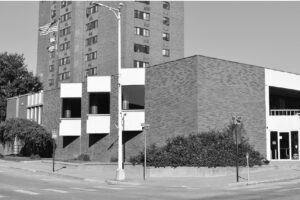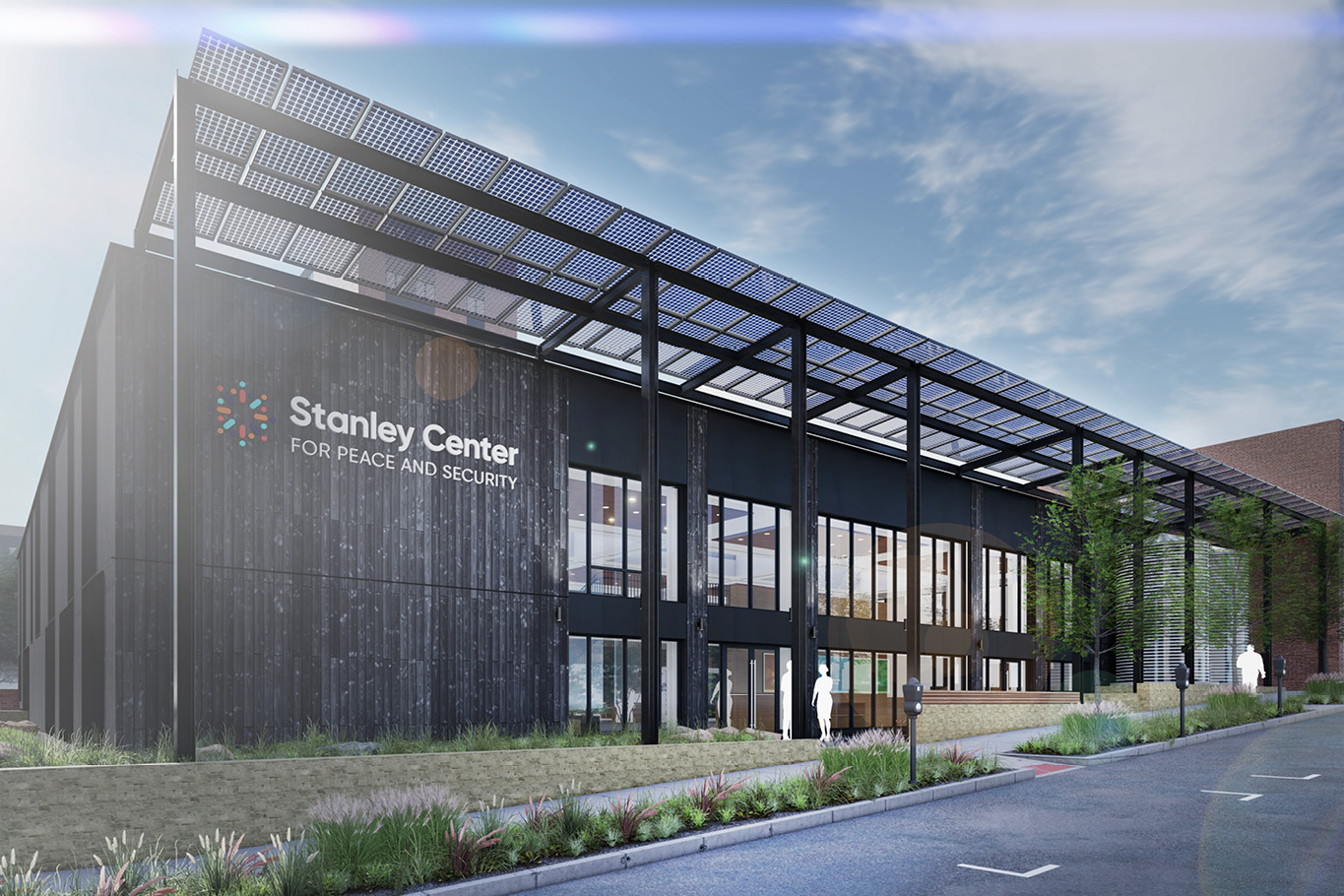In 2019, the Center had outgrown their leased office and decided to create a permanent home in Muscatine. At Neumann Monson, we are thrilled to help them bring their new home to life. The Center plans to renovate the former Musser Public Library and transform the 1960/70s-era facility into one of the most sustainable buildings in Iowa.
Embodying their global mission, the Center seeks a Living Building certification, the most rigorous standard for sustainable development.
The Living Building Challenge
Developed by the International Living Institute (ILFI), the Living Building Challenge (LBC) is an innovative approach to sustainable design. Rather than simply “doing less harm,” the LBC pushes architects and their clients to create self-sufficient, regenerative buildings. Simply put, Living Buildings give more to the planet than they take.
Living Buildings are judged against seven criteria known as “petals,” which set benchmarks for energy, water usage, and occupant wellbeing. The Center seeks a “full-petal certification” by aiming to fulfill the requirements of each petal.
When completed, the building should produce 110% of its energy needs, offset its water usage, and engage the community through educational opportunities. Projects are measured on actual rather than expected performance, so certifications occur a year after construction is complete.
As a renovation, the project is doubly challenging, requiring innovative solutions and a truly collaborative process. The project’s success rests on a strong partnership between the Stanley Center, Neumann Monson, and Graham Construction. Joining early in the process, Graham is a valuable team member who will help us drive solutions that meet the project’s unique functional and performance requirements. During the design process, Graham’s partnership has helped us achieve an in-depth understanding of the performance and sustainability of our building materials, as well as real-time cost estimates.

Musser Public Library Building before renovation.
Global Meets Local
The Stanley Center’s sustainability goals reflect their deep commitment to climate change action. Since its early days, the Center has advocated for environmentally friendly policy on a global scale.
In 1979, founder Max Stanley called on all nations to take “bold steps” to protect the planet. This ethos culminated in 2014 when the Stanley Center made a formal commitment to climate change action, making it one of their three core policy issues.
The new facility also reflects the Center’s commitment to Muscatine. By renovating the former library building, the Center will breathe new life into a prime downtown location and create a space for local programming, which will include free resources related to the Center’s work and educational information about the facility’s green technology.
Additionally, the Center will partner with the neighboring food bank to provide fresh produce from the facility’s 850 square foot urban agriculture space. Like the Stanley Center itself, the new facility merges global consciousness with local action.
An Exciting Opportunity
Soon, Muscatine will be a sustainable design leader in the Midwest. When completed, the Center’s new home will set an example for future development and showcase the possibilities of healthy and restorative design. This project represents our continued commitment to sustainability and our ongoing involvement with the ILFI.
In 2020, we joined the ILFI’s Just Program, a voluntary program that assesses our company culture in terms of equity and social justice. As we continue to work with the Stanley Center and the ILFI, we will regularly post updates on our progress, so be sure to follow along to learn more.
